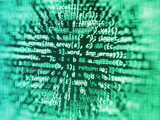IMDEA Networks

OpenBox: A Software-Defined Framework for Developing, Deploying, and Managing Network Functions

David Hay, Profesor Adjunto, Escuela Rachel & Selim Benin de Ciencias Informáticas e Ingeniería, Universidad Hebrea de Jerusalén, Jerusalén, Israel
External Presentation (External Speaker)
In this talk we present OpenBox (http://www.openboxproject.org/) — a software-defined framework for network-wide development, deployment, and management of network functions (NFs). OpenBox effectively decouples the control plane of NFs from their data plane, similarly to SDN solutions that only address the network’s forwarding plane. OpenBox consists of three logic components. First, user-defined OpenBox applications provide NF specifications through the OpenBox north-bound API. Second, a logically-centralized OpenBox controller is able to merge logic of multiple NFs, possibly from multiple tenants, and to use a network-wide view to efficiently deploy and scale NFs across the network data plane. Finally, OpenBox instances constitute OpenBox’s data plane and are implemented either purely in software or contain specific hardware accelerators (e.g., a TCAM). In practice, different NFs carry out similar processing steps on the same packet, and our experiments indeed show a significant improvement of the network performance when using OpenBox. Moreover, OpenBox readily supports smart NF placement, NF scaling, and multi-tenancy through its controller.
This is a joint work with Anat Bremler-Barr and Yotam Harchol.
Access here the OpenBox paper.
About David Hay
Prof. David Hay is an associate professor at the Rachel and Selim Benin School of Computer Science and Engineering, Hebrew University, Jerusalem, Israel. He received his BA (summa cum laude) and PhD degree in computer science from the Technion – Israel Institute of Technology in 2001 and 2007, respectively. In addition, Prof. Hay was with IBM Haifa Research Labs, Cisco Systems (San Jose, CA), the Electronic Department at Politecnico di Torino, and the Electrical Engineering Department at Columbia University, New York, NY. In 2010, Prof. Hay co-founded (with Prof. Brembler-Barr) the DEEPNESS lab, focusing on deep packet inspection in next generation network devices. His research interests are in computer networks – in particular, network algorithmics, packet classification, deep packet inspection, network survivability, and software-defined networking.
Este evento se impartirá en inglés

